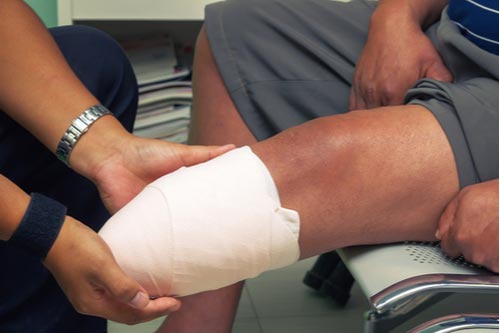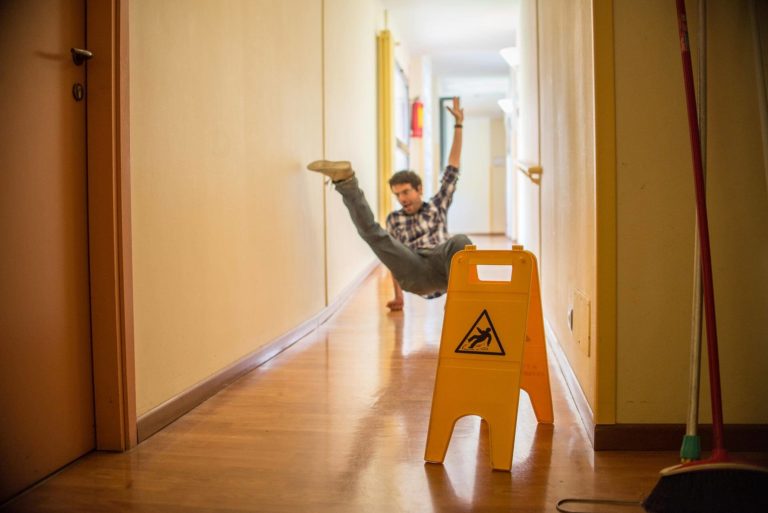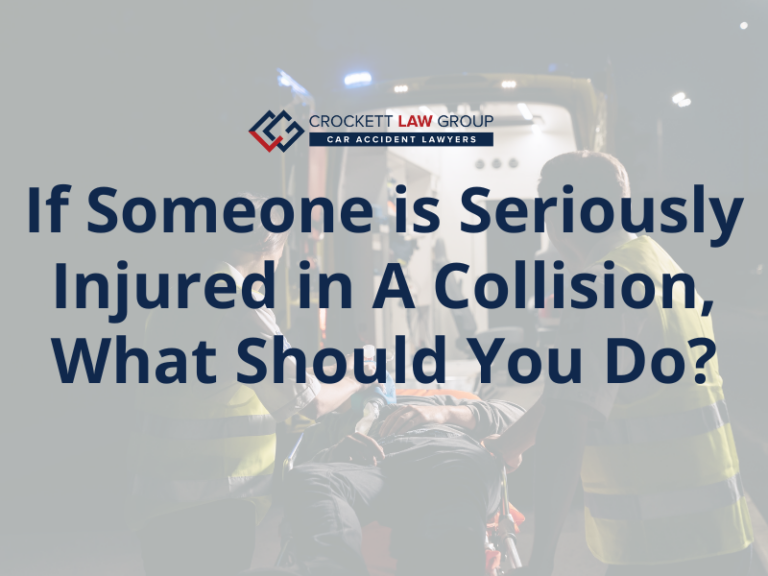Accident-related injuries are quite common and can happen unexpectedly at any place. While most of these accidents result in minor injuries that require little to no medical treatment, in some cases, they can lead to serious and life-altering injuries. As the name suggests, catastrophic injuries are some of the most devastating injuries that one can sustain.
Catastrophic injuries have severe and long-lasting effects on the lives of the victims and their loved ones. Most notably, a catastrophic injury permanently impacts your ability to go back to work and even perform daily tasks, leaving you and your family in a world of immense suffering.
If you or a loved one has suffered a catastrophic injury in Irvine, California as a result of the negligence of another party, you deserve full financial compensation for your pain and losses. Our experienced Irvine catastrophic injury lawyers at the Crockett Law Group are prepared and well-equipped to fight for you.
Call us today at (800) 900-9393 to schedule a free consultation session with one of our personal injury attorneys.


Table of Contents
What Is a Catastrophic Injury?
Under the United States Code section 3796b, a catastrophic injury is any kind of injury that permanently hinders an individual from carrying out any productive work. In short, a catastrophic injury is any injury that causes permanent impairment. Thus, it has a direct and long-term impact on one’s ability to earn an income. Catastrophic injury victims generally suffer the loss of an important part or function of the body, for example, limbs, eyesight/hearing, the ability to walk, the ability to think properly and quickly, and so on. Some of the most common types of catastrophic injuries include:- Severe head injuries and TBIs
- Severe burns
- Spinal cord injuries
- Amputations
Catastrophic Injury Statistics
According to the most recent data from the Centers for Disease Control (CDC), more than 2.5 million people in the United States suffer a traumatic brain injury each year. In 2019, there were about 61,000 TBI-related deaths in the US. TBIs are associated with movement, memory, cognition, behavioral, and speech problems. It is also estimated that about 17,000 people suffer a spinal cord injury each year. A serious spinal cord injury can lead to total paralysis. About 185,000 people undergo amputation surgeries each year in the United States. That translates to about 500 amputations per day. The CDC estimates that more than 500,000 people suffer burn injuries each year. Severe burn injuries often lead to disfigurement in addition to other catastrophic injuries.What Are the Long-Term Effects of Catastrophic Injuries?
As noted earlier, catastrophic injuries have a severe and long-lasting effect on the lives of the victims. They can negatively impact all aspects of your life. After suffering a catastrophic injury, while your health may be stabilized, you will never be able to restore your previous life – your life will be altered permanently. Here are some of the long-term effects of catastrophic injuries:The Inability to Gain Gainful Employment
Catastrophic injuries involve the loss of physical and/or mental capacity. If after an accident, you are left paralyzed, or suffer the loss of a limb, the loss of eyesight or hearing, or end up with memory and cognitive issues, you may be deemed no longer fit to carry out most jobs. So, besides your career being cut short, you will have very limited options, if any, to earn a living. You will need to depend on others for financial support.Financial Troubles
Besides the inability to earn an income, you also have to consider the fact that most catastrophic injuries require extensive and even life-long medical treatment and care. You may require ongoing physiotherapy, advanced medical treatments, in-home care and life-long assistance, and extended stays at the hospital. This means that your bills will quickly rack up and will just continue piling up.
Loss of Independence
The ability to make our own decisions, take care of ourselves, and move about as we want, are some of the key aspects of life that we often take for granted. However, all this can be lost in an instant. When your physical and/or mental capacity becomes compromised you will have to depend on your loved ones for almost everything, thus losing your independence.Lifestyle Changes
As noted earlier, life is never the same after a catastrophic injury. When you are suffering from issues like mobility problems, reduced brain function, lost eyesight/hearing, and so on, it becomes very difficult and even impossible to engage in some or, in some cases, all of the things you previously used to enjoy. This can lead to severe depression and diminished quality of life.Can I Sue for a Catastrophic Injury?
If you believe that your catastrophic injury was caused by the negligence or criminal actions of another party then you have all the right to sue for your pain and losses. In California, for the defendant, to be held liable for your damages, you must prove the following elements of negligence:- The defendant owed you a duty of care in that particular situation. That is, they were required to act or not act in a particular way.
- The defendant breached this duty of care.
- Your injuries were the result of the defendant’s breach of duty of care.
- The defendant foresaw or should have reasonably foreseen the likelihood of someone being harmed or injured by their action or inaction.
- The injury resulted in actual compensable damages.
Why Do I Need a Lawyer for a Catastrophic Injury Claim?
Given the seriousness of the injuries and the scale of damages involved, catastrophic injury claims often result in high compensation amounts. Since this obviously means substantial financial losses for the insurance companies or liable parties involved, they will fight hard to devalue your claim or prove that you were mostly at fault for the accident to minimize the amount they have to pay. They may also try to deceive you with low settlement offers that barely reflect the value of your claim. This is why it is crucial that you have a skilled and experienced Irvine catastrophic injury lawyer on your side when handling such a claim. Here’s how an attorney can help your case:Gather Evidence
When bringing forth a catastrophic injury claim in California, you not only need to present enough facts and evidence to prove that the defendant was negligent, but you also need to prove your extent of damages in order to secure full compensation. Collecting all this evidence can be difficult, especially when you are also nursing a catastrophic injury. However, an Irvine catastrophic injury lawyer has experience putting together evidence in cases and has access to sources that aren’t readily available to the average person. An attorney is in the best position to build a strong case for you.






